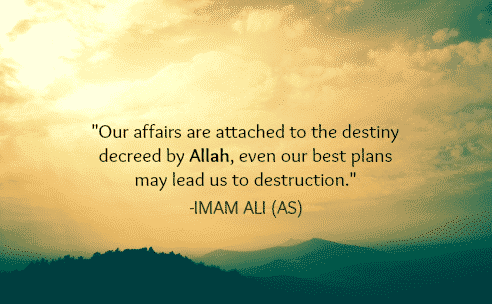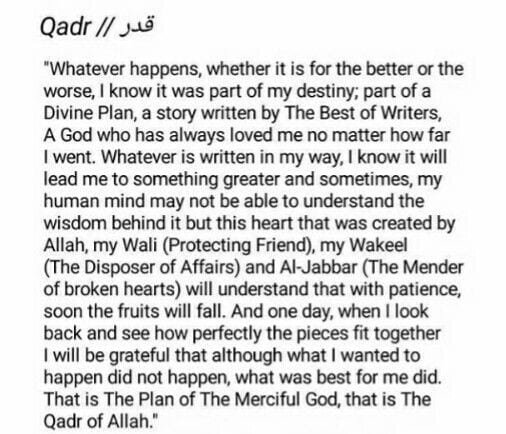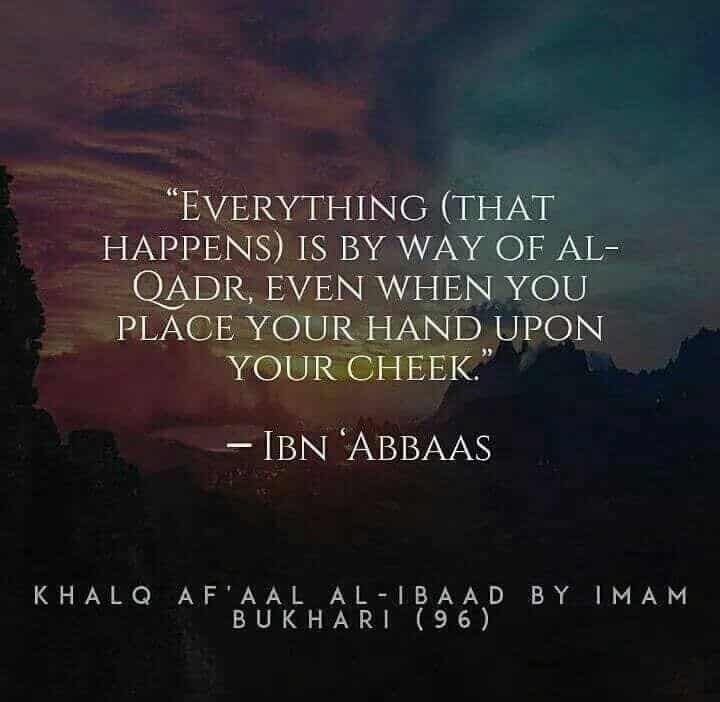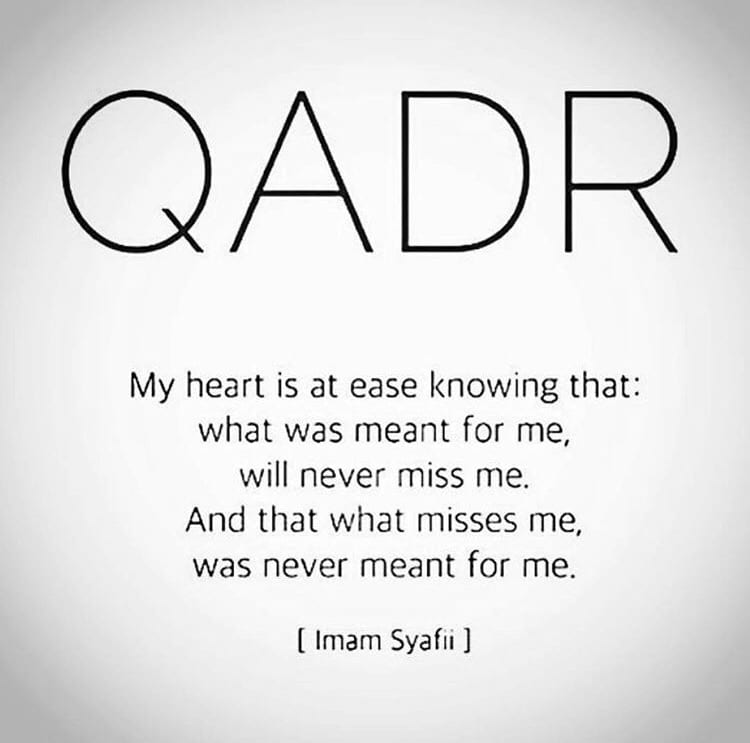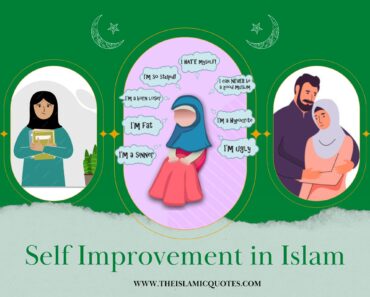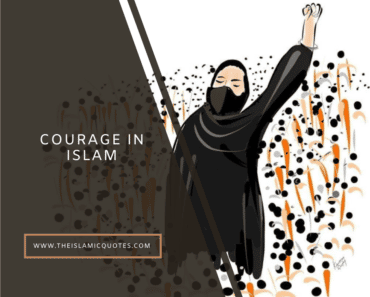Destiny and Fate in Islam. Did you plan that you would read this article when you woke up this morning? Odds are that you didn’t. Chances are you have settled on an arbitrary arrangement of decisions that drove you to this page. As it were, the decisions you made carried you to destiny and you are reading this article.
Nevertheless, you can keep perusing. Or you can quit reading now and accomplish something different. All that you do influences your destiny. Many people, including Muslims, are amazed by the concept of fate and destiny. They do not understand how much freedom they have. They are not sure whether they have the opportunity to make their own decisions or whether Allah has restricted them in a certain way.
Is Everything Pre-destined By Allah?
I generally accept that the most ideal approach to dealing with a problem is the basics first. So we should first lay a foundation.

There are some points which, everyone should keep in mind:
↓ 1 – Allah & Divine Destiny
Confidence in Allah’s capacity, information, and control of all things are one of the six articles of confidence in Islam. This is called Qadar, inexactly interpreted as Divine Destiny.
An individual has the opportunity, the decision, to do as he/she needs. We have no influence over the result of those decisions. The result of these decisions is our predetermination. Only Allah knows what this fate is. Here are Islamic Views on Art & Drawing in the Light of Islamic Quotes.
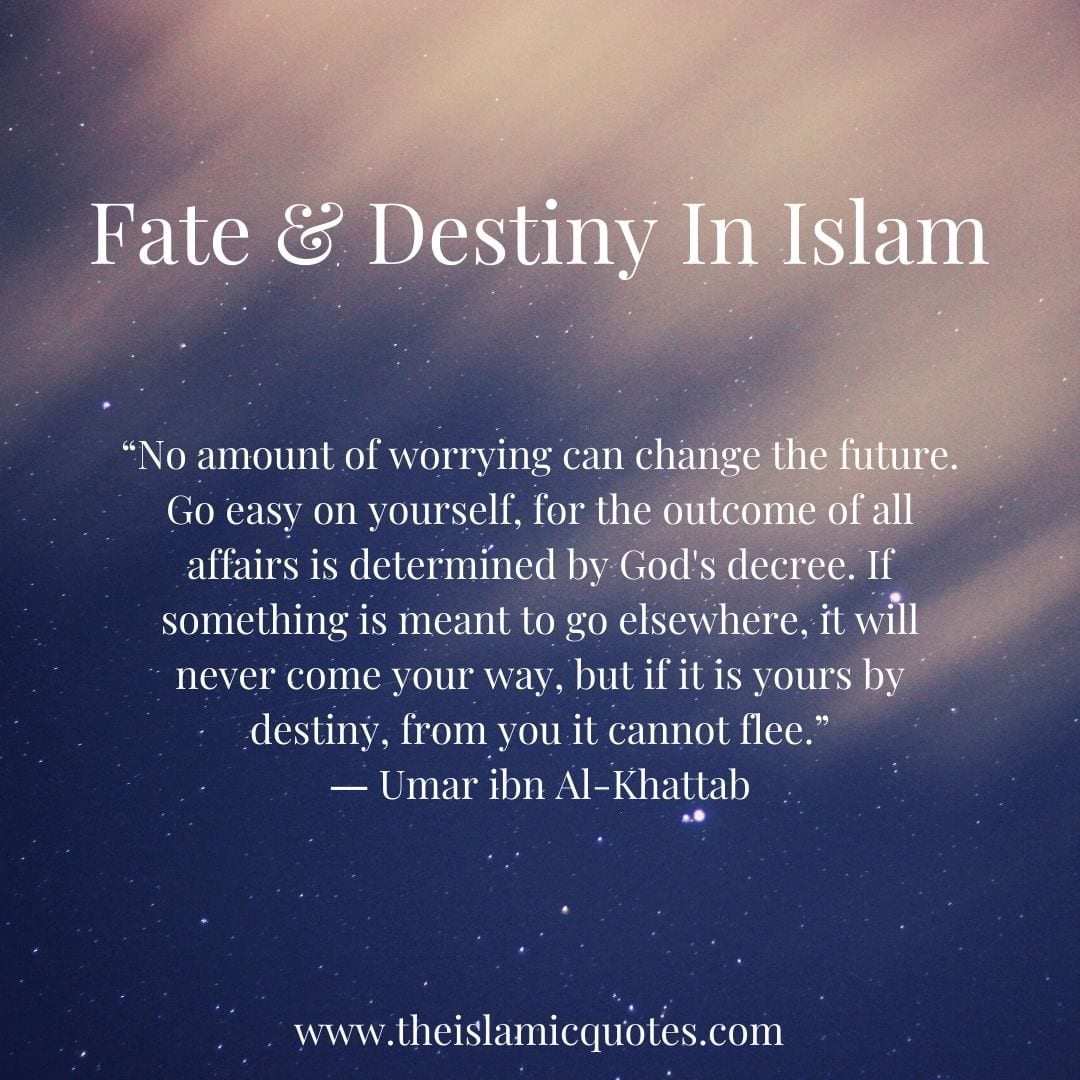
↓ 2 – Can You Change Your Fate?
Do you control your fate? Or are you a slave to fate?
Imagine this, you decide to begin a business for yourself. You do all the significant research. You counsel others in the field. You draw up a sound methodology and line up various money related authorities. You do everything possible to ensure that your business is a victory.
Does any of this assure you that your business will be productive? Not in the smallest degree. The economy may sway. You may make a blunder or mistake. A disastrous event may take away everything that you own. There are endless occasions that could affect your business.
It is fundamental to the Muslim’s conviction that we comprehend this idea. All things considered, the word Muslim signifies “one who submits to the desire of Allah.” By tolerating Allah’s capacity, information, and control of our fate, we figure out how to submit to what He has recommended for us.

↓ 3 – Belief in Qadar
Belief in Qadar, divine fate, keeps us from getting excessively proud or excessively miserable. At the point when catastrophe strikes us, we should comprehend that it is the desire of Allah, for it to occur. That way, we figure out how to acknowledge it with persistence and lowliness as opposed to sadness and disappointment.
One may become disheartened or vexed about disastrous events in their life. We are just human and it is normal to respond to a specific route when disaster comes to pass for us. In any case, the Muslim comprehends that regardless of how troublesome said catastrophe is, it was the desire and will of Allah, and we can’t let it deaden us.
What’s more, if something good transpires, confidence in Qadar will keep us from getting excessively bombastic or pompous. Many successful individuals accept that they have accomplished their riches and status since they are naturally superior to other people. Or then again, that they are more intelligent, well informed, more grounded, or simply more meriting accomplishment than others.
Truly, they do not influence their prosperity. They may have settled on specific options, yet it is Allah that settled on those decisions to turn out to be well for them. On the off chance that they had command over their prosperity, at that point, they ought to have the option to control each part of their life and never face such a difficulty.
In any case, actually even the best entertainers face difficulties sooner or later in their lives.
A man may choose a specific way. However, it is Allah’s will that controls what predetermination that way will lead him to.
We also recommend that you go through these Powerful Islamic Duas To Recite When Facing Difficulties.

↓ 4 – Fate and Destiny in the light of the Quran and Sunnah
It is likewise critical to comprehend that Allah has information over all things. Allah comprehends what will befall us before we do. Allah knows the result of the entirety of our choices. Furthermore, Allah has expressed in His book, the Holy Quran, that everything that will occur all through all creation was at that point composed.
Surah Al-Hadid (The Chapter of Iron) verse 22 states:
“No disaster comes to pass for on the earth or in yourselves yet it is engraved in the Book of Decrees (Al Lawh Al Mahfooz) before We bring it into reality. Verily, that is simple for Allah.”
And Prophet Mohammad (peace and blessings be upon him) has stated in a hadith:
“Allah recorded the declarations of creation fifty thousand years before He made the sky and the earth.”
From these two explanations, we comprehend that Allah has composed everything in a Book of Decrees referred to in Arabic as Al-Lawh Al-Mahfooz, and this was completed 50000 years before He made the sky and earth.
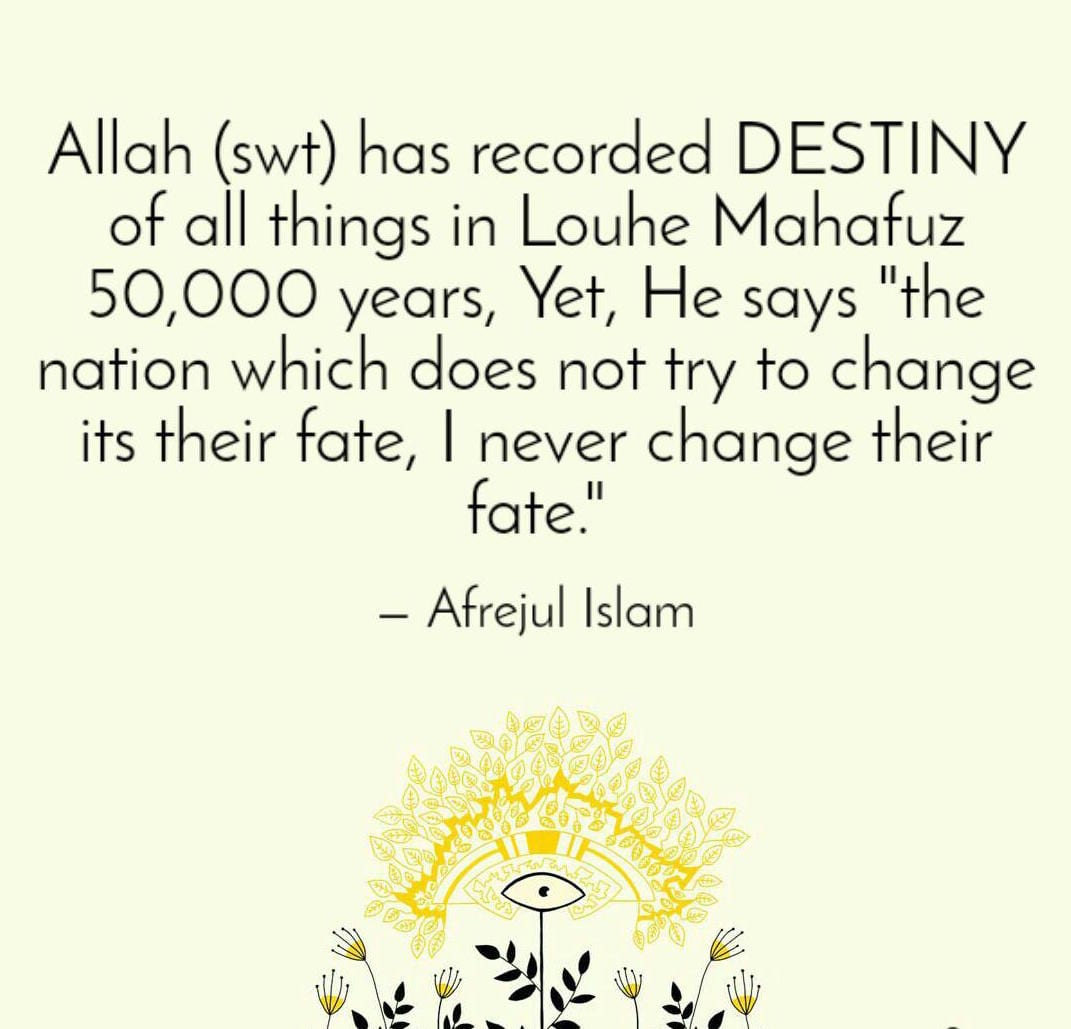
This doesn’t imply that we are compelled to stroll upon a specific way, or that we have no free will.
This solitary implies that Allah is as of now very much aware of all moves that we will make, and the result of those activities.
Simultaneously, whatever we decide to do is administered by the desire of Allah. On the off chance that Allah doesn’t will for something to occur, at that point it won’t occur regardless of how diligently we attempt. Also, on the off chance that He wills for something to occur, it will happen regardless of what we do to stop it.
↓ 5 – Destiny and Fate In Islam
Muslims must believe in fate, or more precisely, the fate of Allah (Qadar).
Destiny is defined as “the event (or direction of event) that will necessarily occur in the future”. There is nothing inevitable. Allah has power over everything. Allah is the master of fate.
Those who accept fate or certain things are inevitable, deadly, and tend to leave things to daydreaming.
However, Muslims who believe in Qadar (the fate of Allah) live their lives according to the laws of Islam, pray to Allah for guidance in decision-making (istikhara) and do their best in everything they do. Then leave the results of these actions to Allah and accept what He has established.
Here are the Everyday Duas That Muslim Parents Should Teach Their Kids.

↓ 6 – Can Dua Change Destiny?
Here’s a short video that beautifully explains how dua and good deeds can alter your destiny:
Concluding Remarks
In the end, belief in Qadar (divine destiny) consists of four things:
- Understand that Allah’s knowledge encompasses all creation and He knows all that His creation will do. Before they even did it.
- Believe that Allah writes everything that happens in the Book of Decisions (Al-Lawh Al-Mahfooz).
- The assumption that everything that Allah’s determines will happen and what He does not want will not happen.
- Knowing that Allah created everything, including the actions of his creation.
Receiving Allah’s Qadar (Divine Destiny) will lead us to a more satisfying and productive life, God willing. Moreover, Allah knows best.
Islamic Quotes On Destiny
